Chlorophyll and its importance for health
Chlorophyll (plant sap), also called the green blood of plants, is one of nature's jewels, with multiple benefits for the physical and mental health of the human individual, being used in slimming and toning programs, but also in treating hormonal problems, respiratory disorders and even cancer prevention.
What is chlorophyll?
Chlorophyll is the green pigment found in many plants (it plays a critical role in photosynthesis - which is why it is also called the green blood of plants) and organisms, discovered in 1817 by French scientists Joseph Bienaimé Caventou and Pierre Joseph Pelletier. Chlorophyll has been used therapeutically and medicinally since the 19th century, thanks to its many beneficial effects on humans, as it is extremely rich in nutrients essential for the harmonious development of the human body (vitamins A, B, C, D, E, K, calcium, magnesium, iron, potassium, calcium, magnesium, iron, potassium). In the right doses and from a safe and high-quality source, chlorophyll improves the body's functions and health.
Where can we get it?
Chlorophyll can be found in most of the vegetables we have access to in everyday life (spinach, lettuce, broccoli, cabbage, kale, rocket, asparagus, celery), in drinks (green tea), but also in associated supplements - capsules (soft, vegetable, gelatinous), chewable tablets, powder (chlorella, spirulina, wheatgrass) or liquid chlorophyll. In the case of supplements, it is up to the manufacturer to decide and recommend how to consume them (taking into account factors such as age, weight, sex, etc.) - for example, the recommended daily dose of pure chlorophyll extracted from alfalfa and clover leaves in the form of chewable tablets is 1-2 tablets per day (for adults only), while the recommended daily dose of liquid chlorophyll is 20 ml (for adults) and 10 ml (for children under 16), with the caveat that the product is not recommended for newborns.
How can it be consumed?
Chlorophyll can be consumed in green salads (spinach salad, tomato salad with arugula, asparagus salad, celery salad with carrot), in drinks (green tea), in side dishes (boiled spinach, spinach soté, boiled broccoli, broccoli soté), cream soups (asparagus, celeriac), purees (spinach, broccoli) and even fresh and smoothies(various combinations of spinach, broccoli, celery, lemon, etc.).a), the choice from the variety presented is left to the consumer's creativity, taste and desire.
Benefits of chlorophyll:
In the everyday diet, chlorophyll offers numerous health benefits:
Increases red blood cell count
Chlorophyll facilitates blood cleansing and improves oxygen transportation through the blood (i.e. brain oxygenation), boosting energy, intellectual abilities and contributing to the overall well-being of the body.
Prevents and inhibits the development of cancer
Chlorophyll, according to several American studies, may prevent cancer (especially colon cancer) by fighting several carcinogens present in the air and in food (including protection against harmful DNA-damaging compounds found in fried foods).<.p>
It has antioxidant properties
Chlorophyll neutralizes harmful molecules in the body and prevents the development of diseases resulting from oxidative stress caused by free radicals.
Helps against anemia
Chlorophyll, thanks to its properties that improve the transport of oxygen through the blood and its nutritional richness (including iron), prevents and combats anaemia, an increasingly common disease nowadays characterized by a lack of oxygen and iron in the blood.
It has antimicrobial, antiallergenic and antiseptic properties
Chlorophyll inhibits the growth of microbes in the body, helps to treat asthma and allergic rhinitis, and can also be used topically on the skin to disinfect and regenerate wounds and fungi (e.g. candida) more quickly.
Detoxifies the body
Chlorophyll has purifying properties that help to invigorate the internal organs and eliminate toxic substances from the body - it also facilitates urination, which is the body's natural process of eliminating toxins, thanks to its diuretic properties.
Freshens body odor
Chlorophyll is a natural odorant, eliminating unpleasant body odors, whether those eliminated through perspiration or those resulting from ingesting foods such as garlic and onions, which are known to produce halitosis (bad breath).
Improves digestion
Chlorophyll improves the functions of the stomach, colon, liver and bladder, relieving disorders of the digestive tract and also combats the bad odor resulting from eating various foods (garlic, onions, lye, etc.) and flatulence (intestinal gas).
Helps lose weight
Chlorophyll, due to the amount of fiber present in the foods that contain it, reduces the feeling of hunger, providing long satiety and reducing water retention in the body, facts that facilitate the elimination of extra pounds and weight loss programs.
Boost immunity
Chlorophyll, due to its alkaline nature, improves the body's immune system, creating a hostile environment for anaerobic bacteria (the culprits in the spread and development of disease in the body), while also speeding up the healing and recovery processes.
Strengthens bones
Chlorophyll, which is rich in magnesium and calcium, helps to build and maintain strong bones and relax and strengthen muscles. Chlorophyll is also a beneficial ally in the treatment of rheumatic conditions and arthritis.
Balances hormones
Chlorophyll balances hormone production (testosterone production in men and estrogen production in women).
Helps the nervous system
Due to its anti-inflammatory qualities, chlorophyll has calming effects on the nervous system, preventing insomnia, episodes of nervous irritability and even depression. It can also help during periods of stress and intense physical and intellectual activity.
Delays ageing
Chlorophyll stimulates enzymes, supports the improvement of skin tissues and combats their degradation, preventing both physical and mental ageing of the body.
Risks
Following the consumption of chlorophyll (in supplement form or in the water-soluble version, chlorophylline) there is a possibility of experiencing symptoms of an uncomfortable nature (stomach cramps, discolored stools, diarrhea). The incidence of side-effects adverse to the human body is rare, however, as long as the quality, validity and quantity of the products consumed are checked - pregnant women are also contraindicated from taking chlorophyll for safety and precautionary reasons.
Conclusion
Chlorophyll is therefore recommended to all those interested in the idea of a life characterized by health (whether physical or mental) and longevity, and is useful for growing young people and adolescents as well as for those who take part in stressful physical and intellectual activities (workers, athletes, pupils, students, teachers, engineers, etc.).


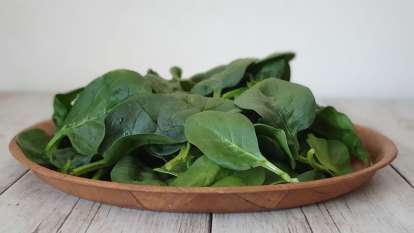
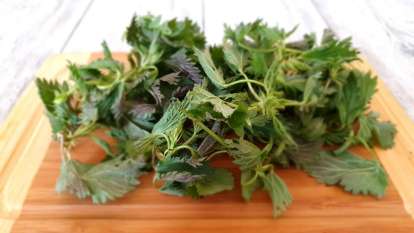
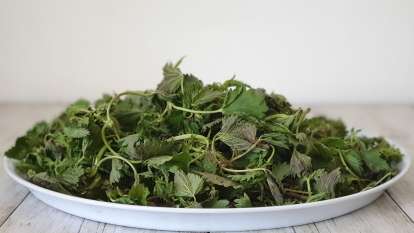

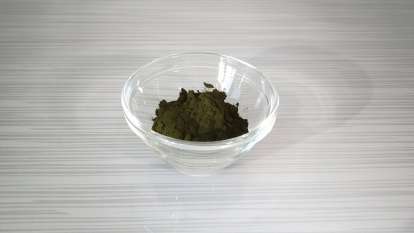
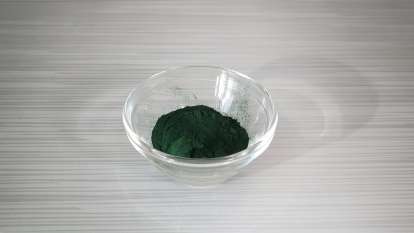
Comments